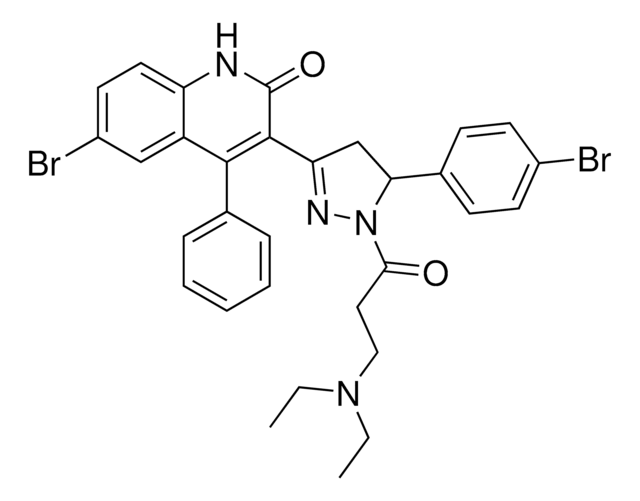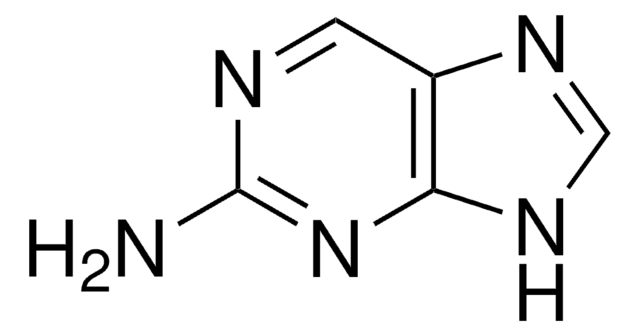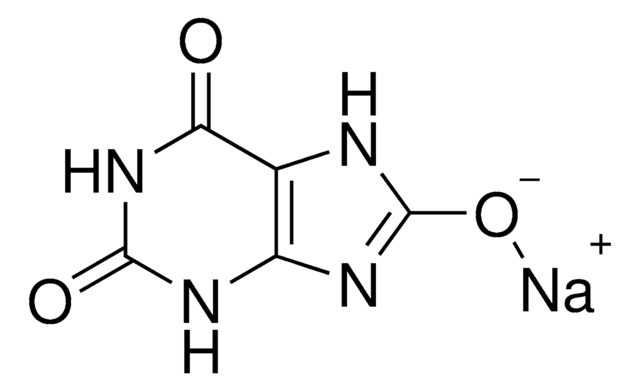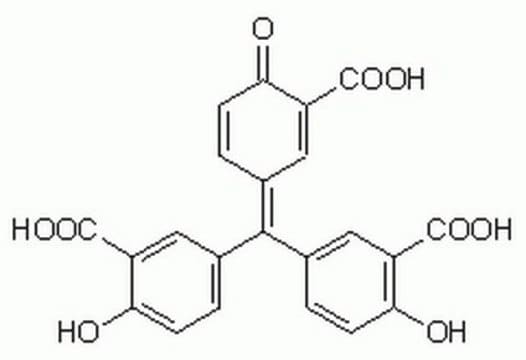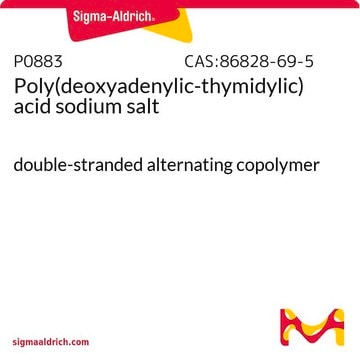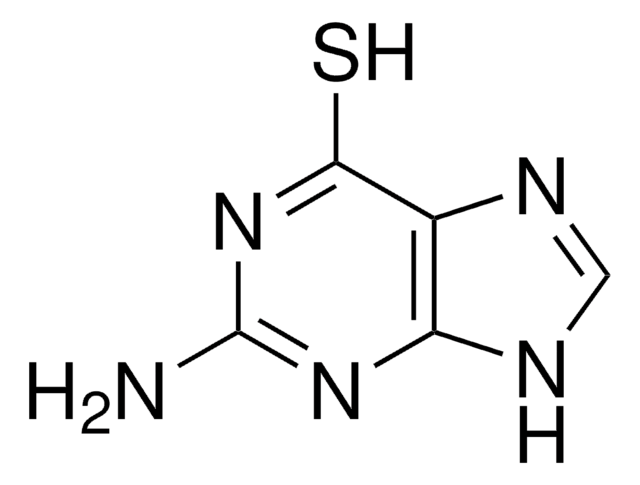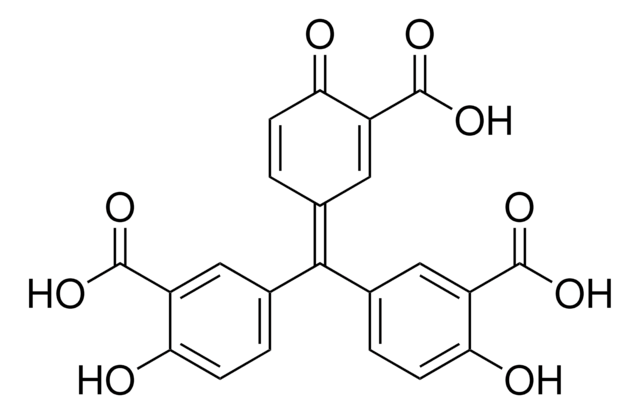B2938
BEPP monohydrochloride
≥98% (HPLC)
Synonym(s):
1H-Benzimidazole-1-ethanol, 2,3-dihydro-2-imino-alpha-(phenoxymethyl)-3-(phenylmethyl)- monohydrochloride
Select a Size
Select a Size
About This Item
Recommended Products
assay
≥98% (HPLC)
form
powder
storage condition
desiccated
color
white to off-white
solubility
DMSO: >10 mg/mL
storage temp.
2-8°C
SMILES string
Cl.OC(COc1ccccc1)CN2C(=N)N(Cc3ccccc3)c4ccccc24
InChI
1S/C23H23N3O2.ClH/c24-23-25(15-18-9-3-1-4-10-18)21-13-7-8-14-22(21)26(23)16-19(27)17-28-20-11-5-2-6-12-20;/h1-14,19,24,27H,15-17H2;1H
InChI key
KDMXJFUGIDGZQL-UHFFFAOYSA-N
Related Categories
Biochem/physiol Actions
Storage Class
11 - Combustible Solids
wgk_germany
WGK 1
flash_point_f
Not applicable
flash_point_c
Not applicable
Choose from one of the most recent versions:
Certificates of Analysis (COA)
Don't see the Right Version?
If you require a particular version, you can look up a specific certificate by the Lot or Batch number.
Already Own This Product?
Find documentation for the products that you have recently purchased in the Document Library.
Our team of scientists has experience in all areas of research including Life Science, Material Science, Chemical Synthesis, Chromatography, Analytical and many others.
Contact Technical Service